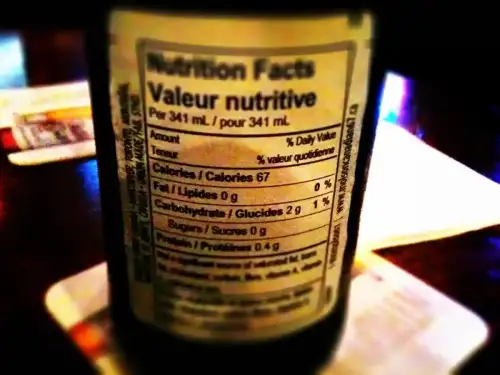Celiac.com 01/07/2025 - The U.S. Food and Drug Administration (FDA) is tasked with safeguarding public health, but for those with celiac disease—a serious autoimmune condition triggered by gluten—the agency’s regulatory sluggishness is falling short. This gap in food safety policy has left millions of Americans, including children like 11-year-old Jax Bari, navigating the life-threatening challenges of celiac disease with inadequate protections.
Celiac Disease: More Than a Dietary Restriction
Celiac disease affects an estimated 3.3 million Americans and is far more than an inconvenience. It is a life-altering condition where ingesting even microscopic amounts of gluten, a protein found in wheat, barley, rye, and most oats, can trigger severe reactions. Symptoms range from gastrointestinal distress to neurological complications and long-term risks such as cancer, anemia, and malnutrition. Unlike other food allergies, there is no treatment or medication to counteract gluten exposure—strict avoidance is the only option.
Celiac.com Sponsor (A12):
For individuals like Jax, everyday activities such as eating out, attending social events, or even choosing a career can be fraught with risk due to the prevalence of gluten and the lack of clear labeling on food products. The absence of mandatory labeling for gluten-containing grains other than wheat exacerbates this challenge, leaving celiac sufferers exposed to potentially life-threatening situations.
A Simple Solution: Gluten Labeling
In September 2023, Jax and his family founded Celiac Journey, an advocacy group pushing for change through a Citizen Petition submitted to the FDA. The petition calls for gluten to be designated as a major allergen and explicitly labeled on all packaged foods in the U.S.
This step could be implemented under the FDA’s existing authority through the Food Allergen Labeling and Consumer Protection Act of 2004 (FALCPA). However, the FDA has yet to act decisively, even as 87 other countries already require gluten labeling as a priority allergen.
At a January 2024 Food is Medicine Summit, FDA Commissioner Robert Califf acknowledged the petition but offered little in terms of action. The hesitation seems tied to institutional inertia and opposition from industry stakeholders, raising the question: Why should protecting public health take a back seat to commercial interests?
The Impact of FDA Inaction
The FDA’s failure to mandate gluten labeling has real consequences. Unlike many allergens, gluten contamination often goes unnoticed until it’s too late. A lack of clear labeling forces celiac patients and their families to decipher ingredient lists, cross-reference manufacturing processes, and rely on guesswork—all while knowing that even a small mistake can lead to severe health outcomes.
Cross-contamination adds another layer of risk. Packaged foods that may seem safe could contain traces of gluten due to shared equipment or production lines. Without mandatory gluten disclosure, consumers have no way to make fully informed decisions about what they consume.
Jax’s journey exemplifies the frustration and fear experienced by families dealing with celiac disease. Despite his young age, he has emerged as a passionate advocate, confronting FDA leadership and calling out the bureaucracy that prolongs critical decisions.
The Science Supports Action
Scientific evidence backs the need for gluten labeling. Both the World Health Organization (WHO) and the Food and Agriculture Organization (FAO) recognize gluten as a significant allergen. Their findings align with the experiences of celiac patients who struggle with hidden gluten in foods labeled as safe.
A single policy change—requiring gluten disclosure on all food labels—could dramatically improve the lives of millions. Yet, the FDA’s culture, described in a recent Reagan-Udall Foundation report as “sluggish and non-responsive to public health concerns,” has stalled this progress.
Restoring Faith in Food Safety
Jax’s Citizen Petition is more than a call for gluten labeling; it’s an opportunity for the FDA to demonstrate that it prioritizes the health and well-being of its citizens. Swift action could address the needs of 750,000 celiac patients and countless others with gluten sensitivities.
The FDA’s Human Foods Program, led by Deputy Commissioner Jim Jones, has a chance to change the narrative and prove that the agency is capable of timely, meaningful action. By granting the petition, the FDA would take a critical step toward rebuilding trust and aligning the U.S. with global food safety standards.
The Clock Is Ticking
For families like Jax’s, every day without clear gluten labeling is another day of uncertainty, risk, and preventable harm. The FDA must act decisively to protect vulnerable populations, ensuring that no child—or adult—has to navigate a life-threatening condition without adequate support.
It’s time for the FDA to show Jax and others that public health matters more than bureaucracy. Granting the Citizen Petition would send a powerful message: the agency is committed to safeguarding the well-being of all Americans, especially those most at risk.
Jax Bari’s advocacy shines a spotlight on the urgent need for reform in gluten labeling policies. His story is a testament to the resilience of celiac patients and their families, who refuse to let institutional inertia dictate their futures. The FDA has an opportunity to act now and fulfill its mission to protect public health. The question is, will it rise to the occasion?
Sign the FDA Citizen Petition at: regulations.gov
Read more at: foodsafetynews.com










Recommended Comments
Create an account or sign in to comment
You need to be a member in order to leave a comment
Create an account
Sign up for a new account in our community. It's easy!
Register a new accountSign in
Already have an account? Sign in here.
Sign In Now